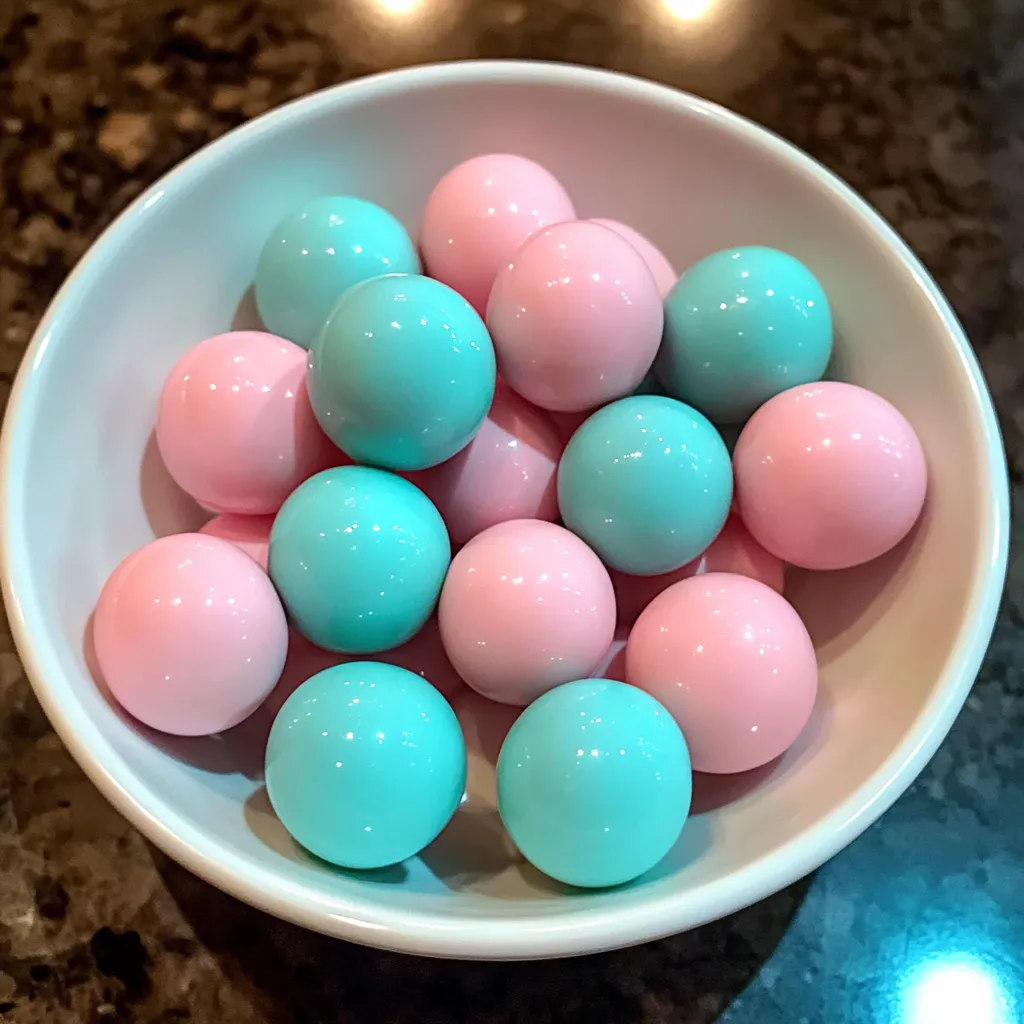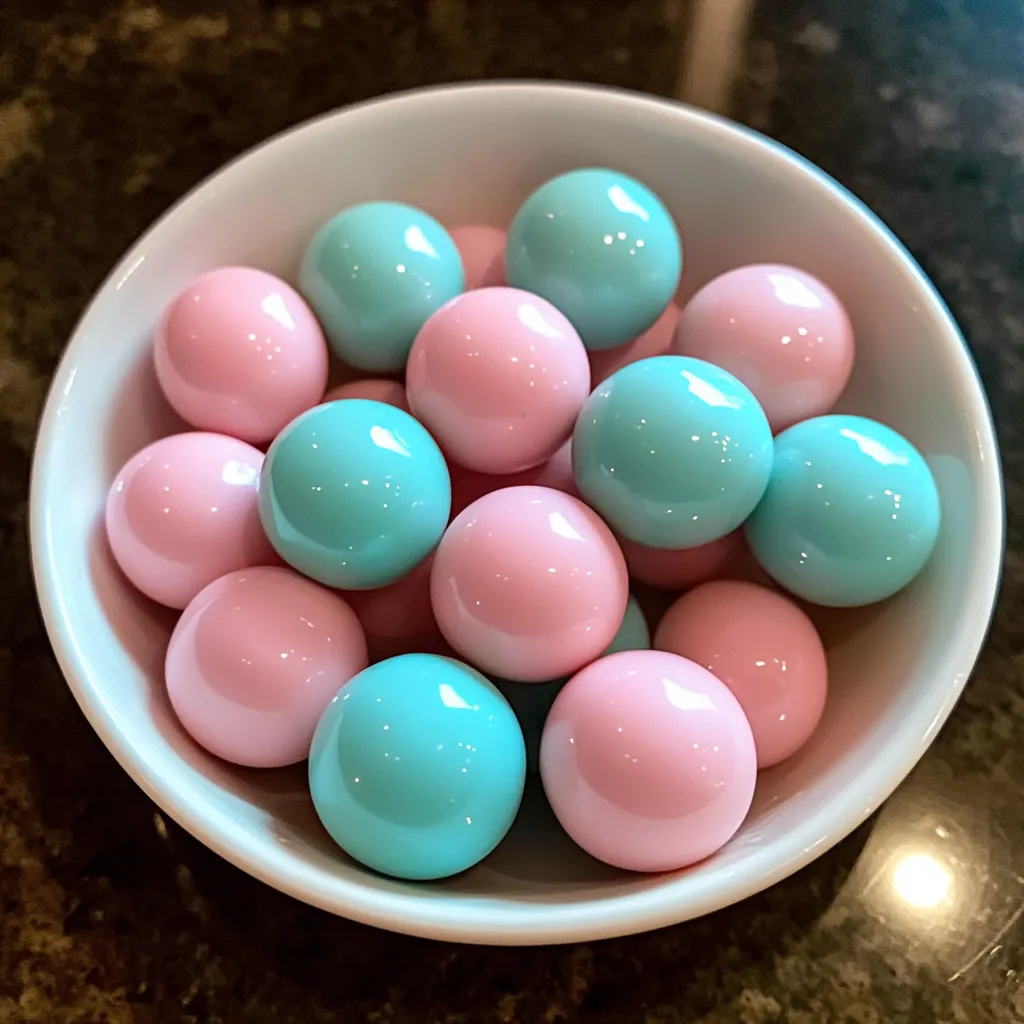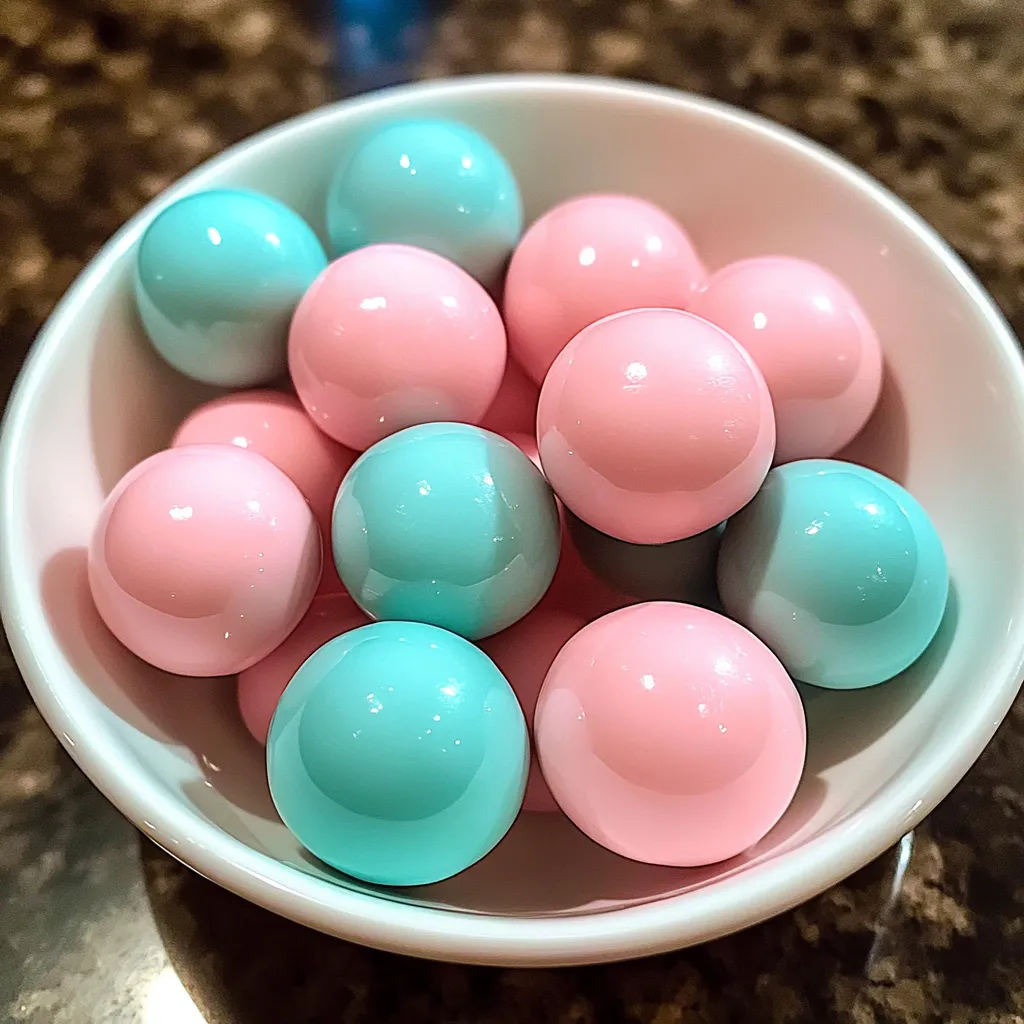 Save
Save
Sticky fingers and colorful creations transform ordinary kitchen ingredients into stretchy, flavorful bubble gum through simple chemistry anyone can master. This hands-on project bridges the gap between cooking and crafting, allowing complete customization of flavors, colors, and textures while creating an entertaining activity perfect for all ages. The magical transformation from hard gum base to pliable, bubble-worthy treat captivates children and adults alike, making rainy afternoons fly by with delicious results.
Creative Confection
Last summer when thunderstorms canceled our beach plans, I pulled out these ingredients as a desperate attempt to entertain three disappointed children. Their initial skepticism vanished the moment they felt the warm gum base transform under their fingers. My nephew, who typically abandons activities within minutes, remained focused for over an hour, meticulously crafting his perfect blue raspberry creation. The genuine delight when he successfully blew his first bubble with something he made himself was worth every sticky countertop and colorful fingerprint.
Essential Ingredients
- Gum base: Creates the fundamental chewiness; look for food-grade varieties from specialty baking suppliers
- Corn syrup: Provides necessary sweetness and helps bind ingredients; light varieties work best for clean flavor
- Powdered sugar: Transforms sticky mixture into workable dough; sift thoroughly to eliminate lumps before using
- Gum powder: Enhances elasticity for better bubble formation; optional but improves texture significantly
- Citric acid: Balances sweetness with tangy notes; measure carefully as small amounts create big flavor impact
- Food coloring: Delivers visual appeal; gel formulations offer vibrant color without adding excess moisture
- Flavoring oils: Infuse distinctive taste; candy-specific oils resist breaking down during extended chewing
Making Process
- Base Preparation:
- Add gum base to microwave-safe bowl, heating in short intervals while stirring frequently to prevent scorching or overheating.
- Sweetener Integration:
- Pour corn syrup into warm, melted base, folding thoroughly with heat-resistant spatula until completely incorporated.
- Flavor Infusion:
- Add selected flavoring oils and food coloring to the warm mixture, stirring vigorously to distribute evenly throughout.
- Power Incorporation:
- Dust clean surface generously with powdered sugar before pouring warm gum mixture on top, allowing it to cool slightly.
- Kneading Technique:
- Work the mixture with well-sugared hands, folding and pressing repeatedly until it develops smooth, elastic consistency.
- Texture Development:
- Continue kneading until the mixture no longer sticks to hands, adding additional powdered sugar as needed during process.
- Shape Formation:
- Pinch off small portions and roll between palms to create traditional gum balls or flatten into sticks depending on preference.
- Curing Period:
- Allow shaped pieces to rest undisturbed at room temperature, permitting the texture to stabilize and flavors to fully develop.
 Save
Save
My first attempts at homemade bubble gum resulted in frustratingly sticky mixtures that refused to transform into proper gum. Through experimentation, I discovered the critical importance of temperature control when melting the gum base. Now I use a digital thermometer to maintain temperatures between 170-180°F, ensuring perfect consistency every time. When demonstrating this technique at my daughter's science fair, even skeptical parents were amazed by how professional the results looked and tasted.
Flavor Combinations
Elevate your candy-making adventure by exploring unexpected flavor pairings that spark culinary creativity. Layer complementary colors and flavors by dividing the base before adding different elements, then twisting them together for striking visual effect. Create seasonal specialties like peppermint swirl for winter holidays or watermelon-lemonade for summer gatherings. For sophisticated adult palates, experiment with lavender, rose water, or cardamom infusions that provide aromatic complexity beyond typical candy sweetness.
Party Presentation
Transform ordinary gatherings into memorable events by setting up interactive gum-making stations where guests select their preferred colors and flavors. Prepare several pre-melted bases in warming dishes, surrounding them with colorful arrays of flavor oils, food colorings, and decorative containers for taking creations home. Provide small recipe cards so participants can recreate their favorite combinations later. This activity creates natural conversation, breaks the ice between unfamiliar guests, and provides a unique take-home favor that continues delivering enjoyment long after the event concludes.
Storage Solutions
Maintain freshness by wrapping individual pieces in small squares of waxed paper with twisted ends, reminiscent of old-fashioned candy shop presentations. Store wrapped gum in airtight containers at cool room temperature, away from direct sunlight or heat sources that could compromise texture. For gift-giving, present collections in vintage candy jars or decorative tins lined with parchment paper, adding personalized labels indicating flavors and creation dates for a professional touch.
After countless batches and many colorful kitchen experiments, homemade bubble gum remains our family's favorite rainy day tradition. There's something profoundly satisfying about watching simple ingredients transform into something most people never imagine making themselves. My children now confidently customize their own flavor combinations, proudly sharing their creations with friends who can barely believe the professional-looking results came from our kitchen. Beyond the delicious outcome, this activity has taught them kitchen chemistry, patience, and creative problem-solving – all disguised as play. While store-bought varieties certainly offer convenience, nothing compares to the pride in successfully blowing a perfect bubble with gum you've crafted from scratch with your own two hands.
 Save
Save
Common Questions About Cooking
- → Where can I find gum base?
- Gum base can be purchased online from candy-making supply websites, specialty baking stores, or craft stores with extensive baking sections. It typically comes in blocks or pellets that need to be melted.
- → What is gum powder and is it necessary?
- Gum powder helps improve the texture of homemade bubble gum, making it smoother and more elastic. While you can make bubble gum without it, including it will give you a better texture that's closer to store-bought gum.
- → Can I use regular food extracts instead of flavoring oils?
- It's best to use candy flavoring oils specifically made for candy making. Regular extracts are water-based and don't mix well with the gum base, while candy oils are more concentrated and designed for candy applications.
- → How long does homemade bubble gum last?
- When stored in an airtight container at room temperature, homemade bubble gum stays fresh for about 1-2 weeks. Wrapping individual pieces in wax paper helps prevent them from sticking together.
- → Why is my bubble gum too sticky?
- If your gum is too sticky, you need more powdered sugar. Keep adding small amounts and continue kneading until the gum no longer sticks to your hands. This process can take several minutes.
- → Can kids help make this recipe?
- Kids can definitely help with parts of this recipe, but adult supervision is needed for the melting steps since the gum base gets very hot. Kids will enjoy adding colors and flavors, and helping with the kneading and shaping steps.
